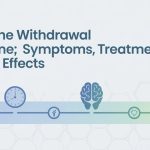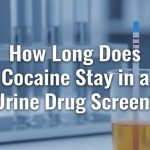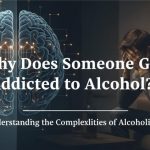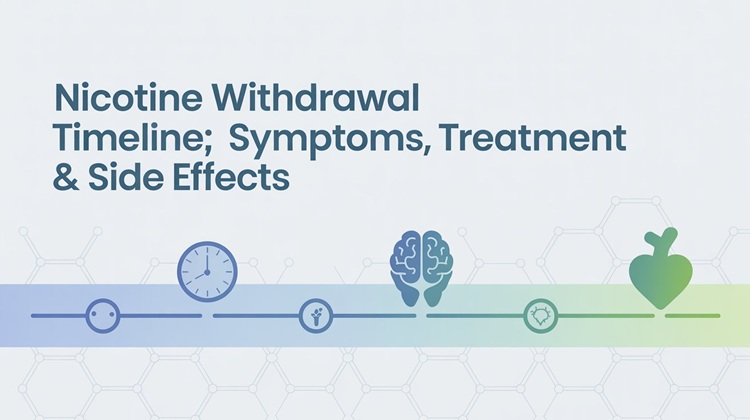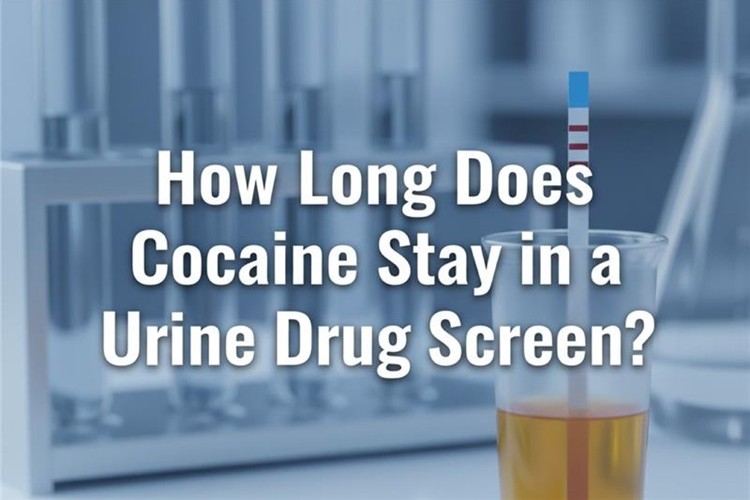
Dual diagnosis, also known as co-occurring disorders, refers to the presence of both a mental health disorder and a substance use disorder in an individual. This complex interplay between mental health and substance use presents unique challenges in diagnosis, treatment, and recovery. In this blog, we will explore the topic of dual diagnosis and delve into effective strategies for its treatment. By drawing upon insights from reputable sources such as the Annual Review of Clinical Psychology, the Journal of Abnormal Psychology, and the Journal of Affective Disorders, we will gain a comprehensive understanding of dual diagnosis and its implications. Key areas to be discussed include diagnostic considerations, integrated treatment approaches, evidence-based interventions, emerging trends in the field, and the importance of ongoing support and aftercare.
Accurate diagnosis is crucial for effective treatment of dual diagnosis cases. The Annual Review of Clinical Psychology emphasizes the importance of considering various factors during the diagnostic process. Firstly, it highlights the significance of recognizing the bidirectional relationship between mental health and substance use disorders. For instance, substance use may exacerbate or mask underlying mental health symptoms, while mental health symptoms can contribute to substance abuse as a form of self-medication. Comprehensive assessments, including detailed clinical interviews, standardized assessments, and collateral information, are crucial in identifying both disorders and understanding their interconnections. Clinicians need to consider the interactions between mental health symptoms and substance use patterns to develop a comprehensive understanding of the individual’s needs.
The Journal of Abnormal Psychology contributes to the diagnostic discussion by focusing on the role of comorbidity in dual diagnosis. Comorbidity refers to the presence of two or more disorders in the same individual. The journal highlights the prevalence of comorbidity between specific mental health disorders (e.g., depression, anxiety, bipolar disorder) and substance use disorders. Understanding the patterns of comorbidity helps in tailoring treatment approaches and identifying common risk factors underlying both disorders.
Integrated Treatment Approaches

An integrated treatment approach that addresses both mental health and substance use disorders concurrently is crucial for effective dual diagnosis management. The Journal of Affective Disorders explores integrated treatment models and emphasizes their superiority over sequential or parallel treatment approaches. Integrated treatment involves collaboration between mental health and substance use professionals, coordinated care, and the use of evidence-based interventions.
The Annual Review of Clinical Psychology provides further insights into integrated treatment by discussing the importance of addressing specific treatment targets. For example, focusing on enhancing motivation for change, developing coping skills, and managing cravings are key treatment goals for substance use disorders. Simultaneously, interventions targeting symptom reduction, emotional regulation, and improving overall functioning are essential for mental health disorders. Integrating these treatment targets can optimize outcomes and enhance overall well-being.
Evidence-Based Interventions

Evidence-based interventions play a critical role in dual diagnosis treatment. The Journal of Affective Disorders emphasizes the effectiveness of pharmacotherapy in managing co-occurring disorders. Medications that target both mental health symptoms and substance cravings, such as specific antidepressants or anti-addiction medications, can be utilized in combination with psychosocial interventions. The use of medication-assisted treatment (MAT) has shown promising results in improving treatment outcomes for individuals with dual diagnosis.
The Journal of Abnormal Psychology highlights the importance of cognitive-behavioral therapies (CBT) in dual diagnosis treatment. CBT aims to identify and modify maladaptive thought patterns and behaviors, providing individuals with effective coping strategies to manage both mental health symptoms and substance use. Motivational interviewing, relapse prevention techniques, and family-based interventions are also recognized as valuable components of comprehensive treatment approaches.
Emerging Trends and Future Directions
- Coordinated Specialty Care for Dual Diagnoses is recent years, there has been growing recognition of the need for specialized care for individuals with dual diagnoses. Coordinated Specialty Care (CSC) is an emerging treatment model that focuses on providing comprehensive and integrated services to individuals experiencing first-episode psychosis and co-occurring substance use disorders. CSC programs typically involve a multidisciplinary team consisting of psychiatrists, psychologists, social workers, and substance abuse counselors. These teams work collaboratively to provide a range of evidence-based interventions, including medication management, cognitive-behavioral therapy, family education and support, and supported employment and education services. CSC programs aim to address the unique needs of individuals with dual diagnosis during the critical early stages of illness, promoting recovery and reducing the risk of relapse.
- Peer Support in Dual Diagnosis Treatment Peer support has gained recognition as a valuable component of dual diagnosis treatment. Peer support involves individuals with lived experience of both mental health and substance use disorders providing support, guidance, and encouragement to others facing similar challenges. Peer support workers play a vital role in dual diagnosis treatment by serving as role models, offering practical assistance, and fostering a sense of hope and empowerment. Research has shown that peer support interventions can lead to improved treatment engagement, increased social connectedness, reduced substance use and mental health symptoms. Incorporating peer support into treatment programs can enhance the overall effectiveness of dual diagnosis interventions, as it offers a unique perspective and instills a sense of validation and understanding.
- Trauma-Informed Care for Dual Diagnosis Many individuals with dual diagnosis have experienced trauma in their lives, which can significantly impact their mental health and substance use. Recognizing the prevalence and impact of trauma, trauma-informed care has emerged as a crucial approach in dual diagnosis treatment. Trauma-informed care involves creating an environment that is sensitive to the needs and experiences of individuals who have experienced trauma. It emphasizes safety, trustworthiness, choice, collaboration, and empowerment. Trauma-informed interventions focus on addressing the underlying trauma and its effects, helping individuals develop coping skills, and providing support in their journey toward recovery. By integrating trauma-informed principles into dual diagnosis treatment, healthcare professionals can create a more supportive and healing environment, facilitating better outcomes for individuals with co-occurring mental health and substance use disorders. Dual diagnosis poses complex challenges, but with a comprehensive understanding of diagnostic considerations, integrated treatment approaches, evidence-based interventions, and emerging trends, effective strategies can be implemented. By embracing a person-centered, holistic approach that addresses both mental health and substance use disorders, individuals with dual diagnosis can be provided with the support and care they need for their recovery journey. Ongoing support, peer involvement, and trauma-informed care further enhance treatment outcomes and promote long-term well-being. Through continued research and advancements in the field, the understanding and treatment of dual diagnosis will continue to evolve, offering hope and improved outcomes for individuals facing this complex condition
[lightweight-accordion title=”References”]
The Annual Review of Clinical Psychology
The Journal of Abnormal Psychology
Journal of Affective Disorders
[/lightweight-accordion]






